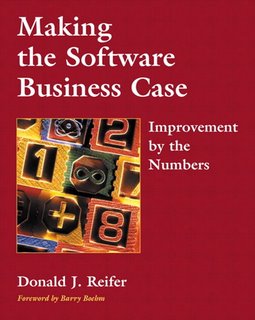2005 Year End Review
Year end again. I have this habit of reviewing my achievements and mistakes in the year. At the same time, I will set new goals for the new year ahead. This is part of the life-long learning journey for me to continually progress myself; mentally, emotionally, spiritually and physically.
Coincidentally, this is the 3rd month of my sabbatical. Hopefully, I will be getting a job soon in 2006.
This sabbatical has allowed me to read and reflect a lot on myself. A career change requires myself to review my personality, strength, weaknesses, likes, dislikes in order to understand what is the type of career that I should next undertake. As I have mentioned before, loving your job is no longer a luxury in the 21st century; it is a pre-requisite to life-long employability.
My years in NxGen was lost amidst a cacophony of work and deadlines. I was lost in striving to achieve the best possible standard. Many times, I forgot the need to maintain good relationship with people around me. My thoughts were usually negative, and I grew critical, harsh and was very unhappy. Although I have always pride myself on my high IQ, I failed to realize that my EQ was very low. I failed to be the guiding light and model that I wanted to be. Instead I was a destructor of others' confidence. Sigh... How blind I was.
But all is not lost; the thorough reading has opened my eyes to a much wider horizon, and I see better now.
Not only in personal terms; career wise, I've learn that a successful IT career takes more than knowing technicalities. Business issues have a large part of influence and should have their fair share of considerations as well. The challenge today is that people either knows technical stuff OR business stuff, causing a wide communication gap that hinders success of many IT projects. I hope my new find perspectives and knowledge will enable me to become that bridge and bring about more success stories.
Initially, many people questioned why I quitted without finding another job, and sacrificing my year end bonus. That insinuated rashness, stupidity, and created much dismay for me. I wanted to leave for a sabbatical, yet in Singapore context, where financial security takes very high precedence over personal growth, many cannot understand the importance of a sabbatical. On looking back now, I do not regret my decision then. I have new found perspective and confidence, with knowledge that I lavish to contribute to in my new career ahead. Knowledge is something money cannot buy.
2006 will be a new and exciting year for me. It will be a year where I shed my old shell, and be a happy man; a model and a guiding light to people around me. A character that I've always wanted to be.




